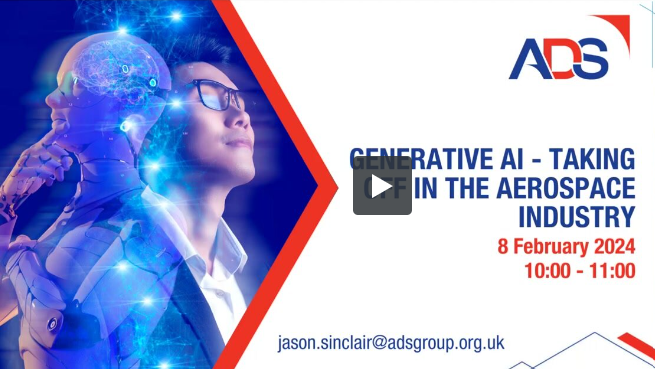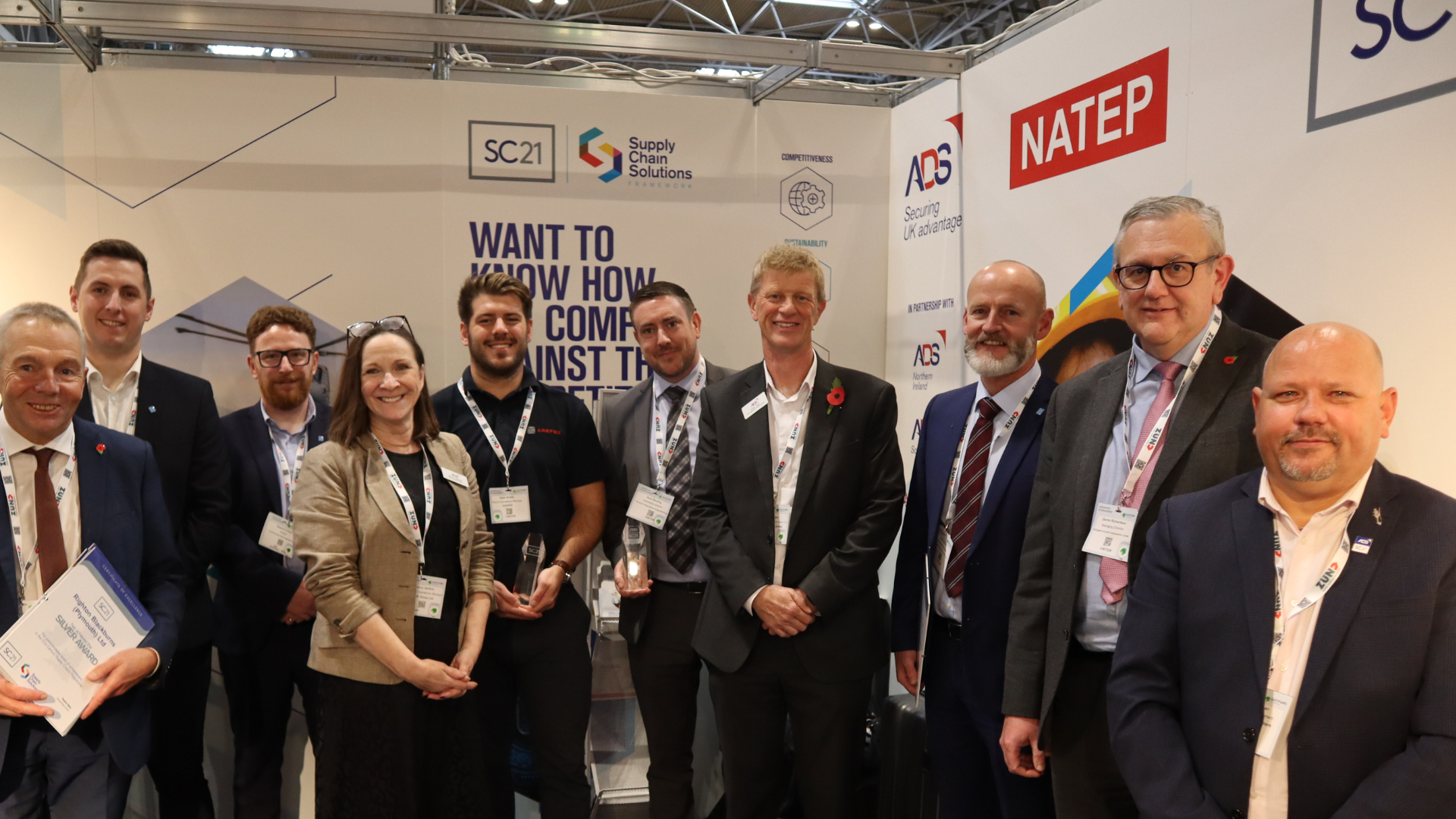
The first instalment of our Emerging Technologies series explored the applications of Generative AI – which is taking off in the aerospace industry (pun intended).
With insights from Ben Bilsland and Rachel Milloy from ADS member RSM UK, conversation focussed on how this new and innovative technology could be applied to enhance efficiency, productivity and innovation…
What is Generative AI?
Generative AI is a type of Artificial Intelligence that is capable of creating original content. It relies on historic data which it uses as information and inspiration for its own generation of original content. It has the ability to change the world of work as we know it – with its applications only just fully being explored. Perhaps the most well know example of a Generative AI is ChatGPT, with users interacting with it using natural language, with prompts and insights to evolve answers in a conversational style.
How will this affect Business?
Businesses are for the most part looking to use generative AI to their advantage – with 82% of middle market business planning to leverage generative AI in their organisations. RSM suggested that generative AI would allow for a boost in productivity, while also changing the nature of the skills needed to fulfil existing (and future) roles. That said, they outlined that many are treading with caution – with 47% of business leaders asked by RSM suggesting that they were worried about data privacy and security. Indeed, this fear has also sparked a desire by business leaders to have regulation of AI, with RSM suggesting that 67% of respondents were in favour of regulation in this area.
What is an Artificial Intelligence (AI) Strategy?
Addressing these concerns, RSM highlighted the need for a strong AI strategy – with 6 components:
- VISION: A strong vision of what the business wants from the generative AI allows for an improvement in efficiency.
- CASE STUDIES: As businesses pilot the generative AI on non-critical areas, case studies provide a shared understanding of the effects of generative AI on business.
- DATA: Correct and properly stored data allows the generative AI system to be effective and therefore improves efficiency and performance.
- TECHNOLOGY QUALITY: The quality of hardware and software are important for the effectiveness of the AI and the safety of your data. RSM suggested that a greater use of generative AI will lead to businesses having to update their technology more often.
- WORKFORCE: Understanding the effects of AI on jobs to help stem any anxiety the workforce may have over AI.
- GOVERNANCE: Businesses should be active and constant in their risk monitoring of AI.
Practical applications of Generative AI in the Aerospace Sector
Generative AI could support with ideation and design stages of the engineering lifecycle, as its ability to create original content suggest an ability to explore gaps the market, or an ability to disrupt the design stage of the process.
RSM also suggested that generative AI can also be effective in the testing and improvement stages of aerospace design, as it is able to find challenges in the testing stages that might have been otherwise missed. Experts suggested that the technology has the ability to optimise more menial, manual improvement factors, freeing up highly skilled engineers to address more complex issues.
The Challenges of Generative AI in the Aerospace sector
Although Generative AI can be used in the aerospace sector, RSM stressed the fact that generative AI does create challenges of its own. One of these challenges relates to potential changes in data management structures that businesses would have to partake in, as generative AI output is entirely reliant on high quality data. RSM also suggested that there would be a challenge to risk management, as occasionally data can be incorrect and must be checked for bias.
One of the final challenges faced by the adoption of generative AI in aerospace is the regulation and ethics around the use of generative AI. RSM suggested that businesses both want stronger regulation and that both business and government should take inspiration from cyber regulation like GDPR when creating further regulation of generative AI. Following on from this RSM suggested that the ethics around generative AI should change as currently businesses both in and out the aerospace sector are to trusting of generative AI when we need to understand AI is not wholly trustable.
Watch On Demand
ADS members can watch the full webinar on demand by clicking on the image. This will take you through the the ADS Members Area:
RSM is a leading provider of audit, tax and consulting services to the middle market. They are the seventh largest business advisory firm in the United Kingdom and the sixth largest, globally. Their experience in the aerospace, defence, security and space sectors has been built up over many years by serving the needs of their clients within these industries. RSM understand the challenges these industries are up against. Whether that be managing complex supply chains, tackling emissions, developing new technologies, addressing the skills shortage or ensuring the safety of vehicles and equipment.
This blog was prepared by Ioan Trigger during a two week work experience placement with ADS. Interested in pursuing placement opportunities with ADS? Get in touch.






